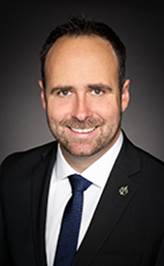Appearance Before the House of Commons Standing Committee on Public Accounts (PACP) - May 11, 2021
On this page
- Auditor General of Canada Audit Report: March 2021
- Overview of the Committee (PACP)
- TBS’s role with Investing in Canada Plan
- TBS Policy Suite Reset
- The Policy on Transfer Payments: overview
- The Management Accountability Framework
1. Auditor General of Canada Audit Report: March 2021
In this section
[Redacted: The content of this section is published material and can be viewed at
Report 9—Investing in Canada Plan (oag-bvg.gc.ca)]
Report 9: Investing in Canada Plan – recommendation / key findings
Issue
The Auditor General tabled a performance audit report on the Investing in Canada Plan on March 25, 2021.
Key facts
- On January 29, 2020, the House of Commons passed a motion asking the Auditor General to audit the Investing in Canada Plan (the Plan).
- The audit covered the period of fall 2016 to December 2020 and implicated Infrastructure Canada, Treasury Board Secretariat (TBS), Privy Council Office, Canada Mortgage and Housing Corporation and Indigenous Services Canada.
- The Plan is a large collection of new and pre-existing programs that commits $188 billion in public funds toward addressing long-term economic, environmental, and social challenges for Canadians.
- The Plan’s five theme areas are public transit, green infrastructure, social infrastructure, trade and transportation infrastructure, and rural and northern communities.
- Twenty federal departments, agencies, and Crown corporations are responsible for supporting Infrastructure Canada in implementing the Plan.
- Infrastructure Canada, Canada Mortgage and Housing Corporation, and Indigenous Services Canada accounted for around 83% of the Plan’s $188‑billion commitment.
Response
- The Government welcomes the Auditor General’s report and agrees with its recommendations.
- Infrastructure Canada and its partner departments have committed to providing meaningful information to Canadians about the Investing in Canada Plan, and is approaching the development of the Management Action Plan with careful deliberation.
- Treasury Board Secretariat will continue to support Infrastructure Canada in providing guidance and support on the Plan going forward.
Background
Objective of this audit: This audit focused on whether Infrastructure Canada and key entities could demonstrate that the Plan is meeting its objectives and whether they were providing complete, reliable and timely reporting about the Plan to Canadians.
In particular, the audit focused on Infrastructure Canada, Canada Mortgage and Housing Corporation and Indigenous Services Canada, as they account for most of the Plan’s commitment.
Findings: Overall, the Office of the Auditor General found that Infrastructure Canada, as lead department for oversight and implementation, was unable to provide adequate public reporting on the Plan’s overall progress. This was due to the following reasons:
- Infrastructure Canada had to rely on often inconsistent data provided by other federal partner organizations, resulting in incomplete and inconsistent reporting.
- Reporting against expected results did not include “legacy” programs that existed before the Plan was created but were still considered part of the Plan and constitute almost half of the overall commitment.
Furthermore, funds were not spent as quickly as planned, putting at risk the Plan’s ability to meet its objectives.
Recommendations: The report makes a single recommendation to Infrastructure Canada as the lead and sole respondent while referencing “federal partners” and “central agencies.”
Recommendation (paragraph 53)
To improve monitoring, tracking, and reporting on progress toward the Investing in Canada Plan’s objectives, Infrastructure Canada should work with its federal partners in the Plan and with central agencies to determine:
- how to better measure progress of projects toward the objectives of the Plan
- which legacy programs are meant to contribute to the objectives of the Plan and how to report on them
- what information the department needs from federal partners to provide public reporting on the Plan that is consistent, comprehensive, and easy to understand
Infrastructure Canada’s response
Agreed. Infrastructure Canada will continue to engage with its federal partners in the Plan and central agencies to:
- better measure and report on progress towards the outcomes and objectives of the Plan, incorporating data demonstrating the impact of these investments as it becomes available
- clarify and improve reporting on the contributions of legacy programs towards the objectives of the Plan
As part of its ongoing commitment to provide consistent, comprehensive and easy to understand public reporting on the Plan, Infrastructure Canada will engage with its delivery partners on data automation for public progress reporting, building on lessons learned from existing horizontal automated reporting processes.
Implications for TBS
TBS’s role with respect to the Management Action Plan for this audit will be established in consultation with Infrastructure Canada and reflect TBS’s responsibilities in providing guidance and support to departments on managing and reporting on horizontal initiatives.Footnote 1
As the Plan lead, Infrastructure Canada collects plan information from all federal partner organizations for reporting and this is captured in Infrastructure Canada’s departmental plan and Departmental Results Report.
More broadly, TBS works closely with departments to ensure that federal expenditures and programming respect Treasury Board policies, Cabinet decisions, and funding decisions, and to bring program proposals before the Treasury Board Cabinet Committee.
In supporting departments in maintaining effective oversight of their expenditures, specific TBS policy and guidance is available to departments on managing and reporting on their programming, including that of a horizontal nature.
TBS policies sourced in Report 9: Investing in Canada Plan
Criteria 1: Infrastructure Canada has a horizontal reporting framework that includes clear and measurable targets, and is tracking and reporting accurate and timely results against the expected results of the Investing in Canada Plan.
- Supporting Effective Evaluations: A Guide to Developing Performance Measurement Strategies
- Guide to Departments on the Management and Reporting of Horizontal Initiatives
- Outcome Management Guide and Tools
- Policy on Results
- Directive on Results
- Policy on Transfer Payments
Criteria 2: Infrastructure Canada has a horizontal reporting framework that provides complete, reliable, and timely information to Canadians.
- Guide to Departments on the Management and Reporting of Horizontal Initiatives
- Guidelines on the Reporting of Grants and Contributions Awards
- Supporting Effective Evaluations: A Guide to Developing Performance Measurement Strategies
- Guide to Integrated Risk Management
- Policy on Transfer Payments
Criteria 3: Selected Infrastructure Canada, Canada Mortgage and Housing Corporation, and Indigenous Services Canada programs are aligned with the objectives of the Investing in Canada Plan, and the organizations are tracking, measuring, and reporting complete, timely, and accurate results to support the achievement of the plan’s objectives.
- Supporting Effective Evaluations: A Guide to Developing Performance Measurement Strategies
- Guide to Departments on the Management and Reporting of Horizontal Initiatives
- Outcome Management Guide and Tools
- Guidelines on the Reporting of Grants and Contributions Awards
- Policy on Results
- Directive on Results
Criteria 4: The horizontal governance structure for the Investing in Canada Plan ensures accountability and complete, reliable, and timely reporting.
- Supporting Effective Evaluations: A Guide to Developing Performance Measurement Strategies
- Guide to Departments on the Management and Reporting of Horizontal Initiatives
- Outcome Management Guide and Tools
- Policy on Results
- Policy on Transfer Payments
*The Auditor General also referred to several archived and rescinded TBS policies, including:
- Directive on the Evaluation Function, Treasury Board, 2009 (rescinded July 1, 2016)
- Policy on Evaluation, Treasury Board, 2009 (rescinded July 1, 2016)
- Policy on Management, Resources and Results Structures, Treasury Board, 2012 (rescinded July 1, 2016)
- Communications Policy of the Government of Canada, Treasury Board, 2012 (rescinded May 11, 2016)
- Results for Canadians: A Management Framework for the Government of Canada, Treasury Board of Canada Secretariat, 2000 (archived)
- Policy on Information Management, Treasury Board, 2018 (rescinded March 31, 2020)
2. Overview of the Committee (PACP)
In this section
- Standing Committee on Public Accounts (PACP)
- Spring 2021 Reports of the Office of the Auditor General
- TBS-related Committee meetings
- Kelly Block (Saskatchewan: Carlton Trail–Eagle Creek): Conservative (Chair)
- Lloyd Longfield (Ontario: Guelph): Liberal (First Vice-Chair)
- Maxime Blanchette-Joncas (Quebec: Rimouski-Neigette–Témiscouata–Les Basques): Bloc Québécois (Second Vice-Chair)
- Luc Berthold (Mégantic–L’Érable): Conservative member
- Philip Lawrence (Northumberland–Peterborough South): Conservative member
- Len Webber (Calgary Confederation): Conservative member
- Matthew Green (Ontario: Hamilton Centre): NDP member
- Kody Blois (Kings-Hants): Liberal member
- Greg Fergus (Hull–Aylmer), Liberal member: Parliamentary Secretary to the President of the Treasury Board and Minister of Digital Government
- Francesco Sorbara (Vaughan–Woodbridge): Liberal member
- Jean Yip (Scarborough–Agincourt): Liberal member
Standing Committee on Public Accounts (PACP)
Mandate of the Committee
When the Speaker tables a report by the Auditor General in the House of Commons, it is automatically referred to the Public Accounts Committee. The Committee selects the chapters of the report it wants to study and calls the Auditor General and senior public servants from the audited organizations to appear before it to respond to the Office of the Auditor General’s findings. The Committee also reviews the federal government’s consolidated financial statements – the Public Accounts of Canada – and examines financial and/or accounting shortcomings raised by the Auditor General. At the conclusion of a study, the Committee may present a report to the House of Commons that includes recommendations to the government for improvements in administrative and financial practices and controls of federal departments and agencies.
Government policy, and the extent to which policy objectives are achieved, are generally not examined by the Public Accounts Committee. Instead, the Committee focuses on government administration – the economy and efficiency of program delivery as well as the adherence to government policies, directives and standards. The Committee seeks to hold the government to account for effective public administration and due regard for public funds.
Pursuant to Standing Order 108(3) of the House of Commons, the mandate of the Standing Committee on Public Accounts is to review and report on:
- the Public Accounts of Canada
- all reports of the Auditor General of Canada
- the Office of the Auditor General’s Departmental Plan and Departmental Results Report
- any other matter that the House of Commons shall, from time to time, refer to the Committee
The Committee also:
- reviews the federal government’s consolidated financial statements
- reviews the Public Accounts of Canada
- makes recommendations to the government for improvements in spending practices
- reviews the Estimates of the Office of the Auditor General
Other responsibilities:
- the economy, efficiency and effectiveness of government administration
- the quality of administrative practices in the delivery of federal programs
- government’s accountability to Parliament with regard to federal spending
Committee members
| Chair | |||
|---|---|---|---|
| Kelly Block | Conservative | Carlton Trail–Eagle Creek | PACP Member and Chair since October 2020 |
| Vice-Chair | |||
| Lloyd Longfield | Liberal | Guelph | PACP Member and Vice-Chair since February 2020 |
| Maxime Blanchette-Joncas | Bloc Québécois | Rimouski-Neigette–Témiscouata–Les Basques | PACP Member and Vice-Chair since February 2020 Public Accounts Critic |
| Members | |||
| Luc Berthold | Conservative | Mégantic–L’Érable | PACP Member since October 2020 TBS Critic |
| Philip Lawrence | Conservative | Northumberland–Peterborough South | PACP Member since October 2020 National Revenue Critic |
| Len Webber | Conservative | Calgary Confederation | PACP Member since October 2020 |
| Matthew Green | New Democratic Party | Hamilton Centre | PACP Member since February 2020 TBS Critic |
| Kody Blois | Liberal | Kings–Hants | PACP Member since February 2020 |
| Greg Fergus | Liberal | Hull–Alymer | PACP Member since May 2019 Parliamentary Secretary TBS and Digital Government |
| Francesco Sorbara | Liberal | Vaughan–Woodbridge | PACP Member since February 2020 |
| Jean Yip | Liberal | Scarborough–Agincourt | PACP Member since January 2018 |
Spring 2021 Reports of the Office of the Auditor General
Meeting summaries
Tuesday, April 13, 2021: In a briefing with the Auditor General on the reports tabled on March 25, 2021, she raised concerns from her report regarding the Investing in Canada Plan. Infrastructure Canada was unable to present a full picture of results achieved and progress made under the Plan and was not reporting on legacy programs against expected results, which amounted to almost half of total funding.
Questioning during the briefing primarily focused on the Investing in Canada Plan, with Committee members expressing concerns over the Auditor General’s finding that Infrastructure Canada did not provide clear and complete reporting, as well as on challenges to coordination and the exchange of information between different orders of government.
The Auditor General also indicated her office had received $25 million in increased funding, which has allowed it to hire 100 new staff. She said this would improve their ability to conduct audits.
Conservative
- Concerns with record-keeping and privacy/security issues due to public servants working from home:
- The Auditor General indicated that these were not issues identified by her office and that any privacy/security issues are flagged to the Deputy Head immediately.
- Requested additional information on the absence of clear and complete reporting for the Investing in Canada Plan:
- The Auditor General explained that a horizontal initiative makes reporting difficult as federal partners were reporting in different ways. Infrastructure Canada was not reporting year after year against the same programs, projects or the same measures, and it was difficult to identify whether progress had been made. The Auditor General recommended outlining the clear measures of progress. Infrastructure cannot compel other deputies to do certain things and the importance of clear roles and responsibilities, accountability and good reporting mechanisms is clear in this case.
Liberal
- Nil
Bloc Québécois
- Requested an update on the Office of the Auditor General’s funding and capacity:
- The Auditor General confirmed that she received $25 million and has increased staffing.
New Democratic Party
- Nil
Other relevant parliamentary activity
- March 25, 2021: Tabling of the 2021 Auditor General of Canada’s Reports: Report 9: Investing in Canada Plan
- Meeting March 24, 2021: Standing Committee on Government Operations and Estimates (OGGO): MP Irek Kusmierczyk (Liberal Party of Canada (LPC)) referred to a portion of Public Services and Procurement Canada’s 2019–20 Departmental Results Report and asked about the current percentage of government contracts awarded to indigenous businesses and how the percentage has evolved.
- Public Services and Procurement Canada Assistant Deputy Minister, Mr. Lorenzo Ieraci, responded that the department is undertaking a number of activities in collaboration with other departments such as Indigenous Services Canada and TBS.
TBS-related Committee meetings
Meeting summaries
43rd Parliament
Tuesday, March 9, 2021: The Secretary appeared alongside the Comptroller General and one of Privy Council Office’s Deputy Secretary to the Cabinet for one hour to discuss the Report on the Message from the Auditor General in the 2018 Spring Reports (public service culture). Questioning focused on how the public service’s accountability regime has improved; the future of the public service in terms of working from home and technology modernizations in better serving the public; the plans to avoid another Phoenix pay system failure; and concrete steps on how the government plans to address diversity and inclusion issues alongside the class action lawsuit.
Tuesday, February 23, 2021: the Secretary of the Treasury Board appeared alongside the Deputy Minister of Public Services and Procurement Canada and the Office of the Auditor General on Report 4: Oversight of Government of Canada Advertising, of the 2019 Spring Reports
- Overall, the meeting was polite and professional, and members were very engaged in their questioning with officials.
- Members from the Conservative Party of Canada (CPC), Bloc Québécois (BQ) and New Democratic Party (NDP) were concerned with Official Languages requirements in Government of Canada advertising standards.
Tuesday, January 26, 2021: The Comptroller General appeared along with the Deputy Minister of Finance and the Auditor General on the Public Accounts of Canada 2020.
- The tone was cordial, and members stayed on topic.
- Mr. Maxime Blanchette-Joncas (BQ) repeatedly raised concerns after the Auditor General indicated that 51% of a sample of public servants had experienced pay issues during the 2019–20 fiscal year.
Interest in TBS /MDGO Portfolio
Conservative
- The former Chair (Kevin Sorenson) made an overall comment to the Committee that public servants have written to him to express that they agreed that the culture needs to be fixed.
- Decisions and approval processes required for major information technology (IT) projects (Assistant Deputy Minister, Deputy Minister, Minister)
- Whistleblower issues in public service culture
- Risk-averse public service, more encouragement for innovation
- Reporting results from Performance Management Agreements
- Accountability issues in the public service (including consequences for executives responsible for Phoenix)
- Concerns about lack of information being briefed to the Minister level
- Plans for future modernization in digital government
Liberal
- Concerns with the amount of approval processes for public servants
- Decisions and approval processes required for major IT projects (Assistant Deputy Minister, Deputy Minister, Minister)
- Accountability issues in the public service (including consequences for executives responsible for Phoenix)
- Next steps for NextGen and stabilization of Phoenix
Bloc Québécois
- Consequences for public servants involved in Phoenix
New Democratic Party
- Expressed disappointment in the unwillingness from the Clerk to accept the report
- Checks and balances for major IT projects
- Expressed interest in how the government will be improving diversity and inclusion in the public service
Other relevant parliamentary activity
- November 19, 2018: Standing Committee on Public Accounts (PACP): Report 53: Report 1, Building and Implementing the Phoenix Pay System, of the 2018 Spring Reports of the Auditor General of Canada
- March 19, 2019: Government Response
- October 24, 2018: Standing Committee on Public Accounts (PACP): Report 52: Report on the Message from the Auditor General in the 2018 Spring Reports
- March 19, 2019: Government Response
- May 30, 2019: Response to recommendation 2 received from the Treasury Board Secretariat, of the Committee’s fifty-second (52nd) report entitled: Report on the Message from the Auditor General in the 2018 Spring Reports
Kelly Block (Saskatchewan: Carlton Trail–Eagle Creek): Conservative (Chair)

- Elected as the Member of Parliament in 2015 for Carlton Trail–Eagle Creek, previously for Saskatoon–Rosetown–Biggar from 2008 to 2015.
- Served as vice-chair on the Standing Committee on Transport, Infrastructure and Communities in the 42nd Parliament.
- Member of the Liaison Standing Committee.
- Previous member of the Standing Committee of Government Operations and Estimates in the 43rd and 41st Parliament, the Standing Committee of Finance in the 40th Parliament.
- Served as the Opposition critic for Public Services and Procurement Canada (appointed by Andrew Scheer).
- Prior to her election, Mrs. Block served two terms as the first female mayor of Waldheim, Saskatchewan, as chairperson of the Gabriel Springs Health District, and was awarded the Maclean’s Parliamentarian of the Year – Rising Star – Award in June 2010.
Lloyd Longfield (Ontario: Guelph): Liberal (First Vice-Chair)

- Elected as the Member of Parliament for the riding of Guelph in 2015.
- Former member of the Public Accounts Committee (PACP) in the 43rd Parliament and is a standing Member of the Environment and Sustainable Development Committee (ENVI).
- Former Executive Director of the Guelph Chamber of Commerce, and former business executive.
Maxime Blanchette-Joncas (Quebec: Rimouski-Neigette–Témiscouata–Les Basques): Bloc Québécois (Second Vice-Chair)

- Elected as the Member of Parliament for Rimouski-Neigette–Témiscouata–Les Basques in the 2019 federal election.
- Bloc Québécois (BQ) Critic for Public Accounts.
- Preceded in his riding by Guy Caron who served as the leader of the NDP from 2017 to 2019.
- Business Administration graduate from the University of Quebec in Rimouski and former administrative officer at the Business Development Bank of Canada.
- Was regional president of the Youth Forum of the Bloc Québécois.
Luc Berthold (Mégantic–L’Érable): Conservative member

- Elected as the Member of Parliament for Mégantic–L’Érable in 2015.
- Critic for Treasury Board.
- Previously the Vice-Chair of the Standing Committee on Transport, Infrastructure and Communities, and the Standing Committee on Agriculture and Agri-Food.
- Prior to his election, Mr. Berthold was Nathalie Normandeau’s Political Assistant, and communications advisor for the Leader of the Official Opposition in 1999, the Interim Director of communications for Quebec’s Liberal Party in 2006, and worked as a speaker, coach and gave leadership training sessions.
Philip Lawrence (Northumberland–Peterborough South): Conservative member

- Elected as the Member of Parliament for the riding of Northumberland–Peterborough South in the 2019 federal election.
- Shadow Minister of National Revenue.
- Former member of Standing Committee of Justice and Human Rights.
- Prior to his election, Mr. Lawrence received his BA from Brock University in Political Science, he attended Osgoode Hall Law School and the Schulich School of business to obtain his law degree and MBA and volunteered at the Financial Planning Standards Council.
Len Webber (Calgary Confederation): Conservative member

- Elected as the Member of Parliament for the riding of Calgary Confederation in 2015.
- Former Vice-Chair of the Standing Committee on Health in the 42nd Parliament.
- Previously a member on the Standing Committee on Health, the Subcommittee on Sports-Related Concussions in Canada of the Standing Committee on Health and the Subcommittee on Agenda and Procedure of the Standing Committee on Health.
- Prior to his election, Mr. Webber was a Member of the Legislative Assembly of Alberta, representing the constituency of Calgary-Foothills from 2004 to 2014, worked as an apprentice electrician and managed his own contracting company for 10 years, and served as vice president and director of the Webber Academy, a private, non-profit school in southwest Calgary for children from junior kindergarten to Grade 12 founded by his father.
Matthew Green (Ontario: Hamilton Centre): NDP member

- Elected as the Member of Parliament for Hamilton Centre in the 2019 federal election in the riding formerly held by NDP MP David Christopherson.
- NDP Critic for National Revenue / Canada Revenue Agency, Public Services and Procurement.
- Former Councillor for the City of Hamilton (2014 to 2018).
- Member of the House of Commons Standing Committee on Public Accounts (PACP), the Standing Committee on Government Operations and Estimates (OGGO), and the Subcommittee on Agenda and Procedure of the Standing Committee on Government Operations and Estimates.
- Member of the Canada-Africa Parliamentary Association and the Canadian Section of ParlAmericas.
Kody Blois (Kings-Hants): Liberal member

- Elected as the Member of Parliament for the riding of Kings–Hants in the 2019 federal election, in the riding formerly held by former TBS President Scott Brison.
- Current member of the Standing Committee for Agriculture and Agri-Food, and the Subcommittee on Agenda and Procedure of the Standing Committee on Agriculture and Agri-Food.
- Former member of the Standing Committee for Agriculture and Agri-Food, and the Standing Committee on Public Accounts.
- Blois completed degrees in commerce, law, and public administration, which sparked his interest in serving his community.
Greg Fergus (Hull–Aylmer), Liberal member: Parliamentary Secretary to the President of the Treasury Board and Minister of Digital Government

- Elected as the Member of Parliament for the riding of Hull–Aylmer in 2015.
- Member of the Standing Committee on Access to Information, Privacy and Ethics.
- Former member of the Standing Committee on Finance, and the Standing Committee on Public Accounts.
- Current and former Parliamentary Secretary to the President of the Treasury Board and Minister of Digital Government. Former Parliamentary Secretary to the Minister of Innovation, Science and Economic Development.
- Former National Director of the Liberal Party of Canada and former political staffer in various ministerial offices.
Francesco Sorbara (Vaughan–Woodbridge): Liberal member

- Elected as the Member of Parliament for the riding of Vaughan–Woodbridge in 2015.
- Member of the Standing Committee on Access to Information, Privacy and Ethics.
- Former member of the Standing Committee on Finance, as well as the Subcommittee on Agenda and Procedure of the Standing Committee on Finance, and the Standing Committee on Public Accounts.
- Parliamentary Secretary to the Minister of National Revenue.
- Sorbara is a chartered financial analyst and worked in the global financial markets for nearly 20 years in both Canada and the United States for Scotiabank, JPMorgan Chase, and global credit rating agency DBRS.
Jean Yip (Scarborough–Agincourt): Liberal member

- First elected in a by-election on December 11, 2017, as the Member of Parliament for the riding of Scarborough–Agincourt. Elected in 2019 as the Member of Parliament for the riding of Scarborough–Agincourt.
- Current member of the Special Committee on Canada-China Relations.
- Former member of the Public Accounts Committee, and the Government Operations and Estimates Committee.
3. TBS’s role with Investing in Canada Plan
In this section
Issue
The Treasury Board Secretariat (TBS) provides guidance on governance structures and results reporting frameworks for all officially designated Horizontal Initiatives in the federal government, including the Investing in Canada Plan. While the Office of the Auditor General did not raise any concerns about TBS’s guidance, the lead department, Infrastructure Canada and TBS have already engaged in addressing the reporting deficiencies identified in the audit, as reflected in the Management Action Plan.
Key facts
- The Investing in Canada Plan is an officially designated Horizontal Initiative. It is comprised of more than 90 new and existing programs that commit more than $180 billion in public funds toward addressing long-term economic, environmental, and social challenges for Canadians.
- Infrastructure Canada, as the lead department, collaborates with 21 federal partner organizations and two central agencies to meet reporting requirements and oversee the Investing in Canada Plan’s implementation.
- Policy direction on the composition and direction of the Investing in Canada Plan (including on partner departments and programming) was the purview of Infrastructure Canada and the Privy Council Office. All officially designated Horizontal Initiatives are subject to the requirements set out by TBS in the Guide to Departments on the Management and Reporting of Horizontal Initiatives. This guidance supports the set-up of governance and results reporting frameworks.
- The Office of the Auditor General did not raise any concerns about TBS’s framework for managing and reporting on horizontal initiatives.
- TBS is offering additional support to Infrastructure Canada, to address the Office of the Auditor General’s recommendation.
Response
- As part of its continued efforts to improve transparency, and following previous Office of the Auditor General recommendations, TBS provides a Guide to Departments on the Management and Reporting of Horizontal Initiatives.
- This Guide is intended to help lead departments set up the key components of each horizontal initiative. That includes:
- governance, to facilitate sound, coordinated management of the initiative
- a program reporting framework that maps out activities, resources, and results
- and a process for reporting on progress
- TBS will continue to support Infrastructure Canada in fulfilling its Management Action Plan. This will include providing advice for the development of an effective result reporting strategy that is consistent, comprehensive, and easy to understand.
Background
The following are the core elements set out in the Guide to Departments on the Management and Reporting of Horizontal Initiatives:
- Governance: facilitating sound, coordinated management of the initiative
- Horizontal Initiative Framework: mapping out activities, resources and results
- Progress reporting: communicating what is achieved and what is spent or not spent
1. Governance
Implicated departments are required to set up, at a minimum, a senior-level Horizontal Initiative Oversight Committee that is responsible for:
- development of results and resource frameworks
- data collection and consolidation (including criteria on what is considered to be in scope)
- monitoring of indicators and spending
- reporting content and frequency
- unforeseen issues and course corrections that arise during the life of an initiative
- resolution of disputes
- liaison and ongoing engagement with central agencies
- coordination of any horizontal evaluations and audits
- timing of meetings and agenda
- communication strategies
- close-out considerations and approach
The lead department is required to convene and support this Committee.
2. Horizontal Initiative Framework
The Horizontal Initiative Framework should aim to facilitate the following:
- assessment of progress toward stated outcomes
- decisions on renewal of the initiative and new areas of focus
- decisions on adjustments to resource allocation
- reporting to central agencies and Parliament
Horizontal initiatives are required to conduct ongoing collection and monitoring of performance data, including measures that help assess progress toward the achievement of its shared outcome(s).
3. Progress reporting
Progress reports should facilitate early detection of horizontal issues and be understandable to the target audience. They should include:
- an assessment of progress toward outcomes using performance data examined in relation to targets using trend and variance analysis, as appropriate
- explanations for observed performance
- planned and actual spending, with an explanation of significant variances
- highlights of any significant changes to funding levels
- any changes in contextual environment or assumptions
- identification of any changes to plans for measuring or evaluating performance, for example:
- changes to indicators or targets
- new planned evaluations or changes to them
- articulation of any decisions required
- updates on implementation of recommendations arising from evaluations or audits
Summary information on horizontal initiatives is provided to Parliament and Canadians through Departmental Plans and Departmental Results Reports of the lead department based on a consolidation of inputs from all participating departments.
For reference
The link below is Infrastructure Canada’s Horizontal Initiatives Supplementary Information Table from its 2019–20 Departmental Results Report (tabled December 7, 2020). “Investing in Canada” is the only horizontal initiative listed in the table.
4. TBS Policy Suite Reset
In this section
Issue
The Auditor General tabled a performance audit report on the Investing in Canada Plan on March 25, 2021. Though it did not raise any concerns about TBS’s guidance, the Office of the Auditor General cited the Treasury Board policy suite as part of its evaluation criteria.
Key facts
- Since 2005, the Treasury Board Secretariat has undertaken two major reviews of the Treasury Board Policy Suite. Each review has progressively:
- reduced the number of policies and requirements imposed on departments
- clarified accountabilities (that is, for deputy heads and officials within departments)
- improved the structure of Treasury Board policies to make them more user-friendly
Cumulatively, these reviews have reduced the number of Treasury Board policies from 196 to 31.
Response
- The TBS Policy Suite reset in recent years brought forward important changes that improved horizontal management of departments across functional areas, particularly in the areas of integrated management of information technology, information and data, and service.
- The reset also built in flexibilities that allow the rules that govern administrative management to be more responsive to changes in the operational context (for example, advancements in technology), while still managing risk.
- Looking forward, the Policy Suite is positioned for continuous improvement that is responsive to changes in the environment and supported by evidence.
- Specifically, on Horizontal Initiatives, as a central agency, TBS’s role is to establish a common framework for departments to approach the management and reporting of all horizontal initiatives.
- This common framework, established through the 2018 Guide to Departments on the Management and Reporting of Horizontal Initiatives, is based on best practices, lessons learned and consultation with various departments.
- The leadership offered in the guidance is meant to serve as a starting point.
- TBS regularly reviews the guidance it publishes to improve clarity and help departments comply more easily.
Background
- In 2005, TBS launched the Policy Suite Renewal initiative (2005–2013).
- The 2006 Federal Accountability Act was a major driver behind the changes that were brought forward, particularly given the establishment of deputy heads as “Accounting Officers” for departments.
- It also introduced the Smart Rules Charter, which mandates that rules are only put in place if alternative measures (for example, voluntary measures) are insufficient.
- In 2014, TBS launched the Policy Suite Reset initiative which is now largely concluded. Policy Suite Reset introduced new, streamlined policies in each area of management within the Treasury Board Policy Suite. The objectives of Policy Suite Reset were to:
- pare down, plain-language and group logically policy tools
- make policies more user-friendly
- eliminate overlap within and between policies
- optimize reporting burden
- and ensure that regular reviews are conducted
- All officially designated Horizontal Initiatives, including the Investing in Canada Plan, are subject to the requirements set out by TBS in the 2018 Guide to Departments on the Management and Reporting of Horizontal Initiatives.
- The Guide includes guidance on setting up governance mechanisms, as well as templates for framing financial and non-financial performance information tracking and reporting. It includes a collective management structure, complete accounting, and regular reporting of results using performance indicators.
- The Guide was most recently updated primarily in response to a 2016 report of the Auditor General, better articulating reporting roles and responsibilities, clarifying guidance for lead and partner departments with respect to reporting a consolidated view of progress, and clearly explaining the requirements of a financial costing framework for horizontal initiatives.
5. The Policy on Transfer Payments: overview
In this section
Issue
Appearance of the Secretary before the House of Commons Standing Committee on Public Accounts (PACP) on the Auditor General’s 2021 Report 9: Investing in Canada Plan, which referenced the Policy on Transfer Payments.
Key facts
- Transfer payments represent approximately $50 billion of annual discretionary spending, and are one of the government’s key instruments in furthering its policy objectives and priorities.
- The Policy on Transfer Payments sets out the roles, responsibilities, and accountabilities for the management of transfer payments, supporting over 45 departments and over 800 programs.
- The Treasury Board approves terms and conditions for new transfer payment programs, except when a minister is authorized including by legislation (section 6.1.1).
- The Secretary of the Treasury Board is responsible for providing leadership and support in promoting and facilitating collaboration among departments for government-wide harmonization of transfer payment programs, the standardization of administrative processes, procedures and requirements, and the sharing of best practices (section 6.4.2).
- Deputy heads are responsible to:
- Ensure that the administrative requirements on recipients are proportionate to the risk level, that is, that monitoring, reporting and auditing reflect the risks specific to the program, the value of funding in relation to administrative costs, and the risk profile of the recipient (section 6.5.7).
- Monitor compliance with this policy and its supporting directives through periodic audits and other assessments to ensure their effective implementation. Deputy heads are to take corrective action when needed (section 6.6.1.1).
- The Directive on Transfer Payments establishes the requirement that:
- Program Terms and Conditions include a description of any information that may be requested from a recipient on results achieved through the use of the grant, or in the case of a contribution through financial and performance reporting, to support the program’s performance measurement strategy and departmental reporting.
- The funding arrangement (grant or contribution) includes a provision to ensure the recipient make records and information available to the Auditor General of Canada when requested by the Auditor General for the purposes of an inquiry under subsection 7.1(1) of the Auditor General Act.
Response
- The government is committed to ensuring that transfer payments are managed in a manner that respects sound stewardship and the highest level of integrity, transparency, and accountability.
- The Treasury Board Policy on Transfer Payments explains the roles and responsibilities for the delivery and management of transfer payment programs, which are categorized as grants, contributions and other transfer payments.
- The Treasury Board is responsible for approving the terms and conditions for new transfer payment programs which sets out the parameters under which transfer payments may be made for a given program.
- TBS provides advice and support and works with departments to ensure federal expenditures and programming respect Treasury Board policies, Cabinet decisions, and funding decisions.
- Grant and contribution programs that support recipients, achieve results and provide real benefits for Canadians.
Background
The Treasury Board Secretariat (TBS) works with departments to ensure federal expenditures and programming respect Treasury Board policies, Cabinet decisions, and funding decisions. This includes supporting departments in the development of Treasury Board submissions and providing advice with respect to compliance with the Policy on Transfer Payments.
The Office of the Auditor General’s audit of the Investing in Canada Plan was undertaken in response to a motion adopted by the House of Commons on January 29, 2020. It was made public on March 25, 2021, as part of the Office of the Auditor General’s 2021 Spring Reports.
Announced in Budgets 2016 and 2017, the Investing in Canada Plan encompasses more than $180 billion of federal infrastructure investment over 12 years (2016–2028) and is being delivered by 21 federal departments and agencies through over 80 programs, with reporting coordinated by Infrastructure Canada. The Office of the Auditor General focused on Infrastructure Canada, Indigenous Services Canada, and Canada Mortgage and Housing Corporation programming, which together account for 83% of Investing in Canada Plan funding.
The Office of the Auditor General Audit objectives were to determine whether Infrastructure Canada and key entities can demonstrate that the Investing in Canada Plan (the Plan) is meeting its objectives and that they are providing complete, reliable and timely reporting against the Plan to Canadians. Guidance and support on the reporting of this horizontal initiative falls under the Results division of the Expenditure Management Sector within TBS.
With respect to supporting the Office of the Auditor General in completing the audit of Investing in Canada Plan, all requests for information were coordinated through the Office of the Auditor General Liaison function that sits within the Priorities and Planning unit of TBS. The majority of Office of the Auditor General questions were responded to by program sector given the support role of the policy centre in the review of Treasury Board submissions, in particular the Terms and Conditions as required under the Policy on Transfer Payments.
Departments and Treasury Board each have oversight responsibilities. Ministers and deputy heads (who function as accounting officers as designated by the Financial Administration Act) oversee policy application within their departments. Treasury Board, with the assistance of TBS, oversees policy application government-wide. The government has a compliance framework that consists of:
- the Framework for the Management of Compliance
- Departmental internal audit functions and program evaluations that provide ongoing oversight
- external bodies which provide additional oversight functions, such as the Official Languages Commissioner and the Auditor General
For the Policy on Transfer Payments, deputy heads are responsible for monitoring compliance with Treasury Board–approved policies through periodic audits and assessments. TBS is responsible for monitoring departmental compliance and recommending corrective action. Departmental managers are responsible for the management and delivery of transfer payments supported by the Directive on Transfer Payments, which provides the operational requirements to support sound stewardship, integrity, transparency and accountability – in a manner that is sensitive to risk.
6. The Management Accountability Framework
In this section
Issue
The Management Accountability Framework is a key mechanism used by the Treasury Board of Canada Secretariat (TBS) to monitor the management performance of federal departments and agencies. The 2020–21 Management Accountability Framework exercise was modified in the context of COVID‑19.
Key facts
- The Management Accountability Framework is an annual exercise involving the assessment of over 60 federal organizations that identifies management expectations based on the Treasury Board policy suite, assesses organizational practices and performance using a series of indicators, and highlights management strengths and opportunities for improvement.
- In addition to assessing departmental performance, TBS also used the 2020–21 Management Accountability Framework cycle to understand how departments modified their management processes in light of the COVID‑19 pandemic. These insights were captured through extensive interviews with chief financial officers, chief information officers and heads of human resources of participating organizations.
- A government-wide report which will summarize the enterprise-wide learnings and best practices should be available in June 2021.
Response
- The Management Accountability Framework sets out expectations for sound public sector management, supports the management accountability of deputy heads and seeks to improve management practices across departments.
- The Management Accountability Framework is important because it provides insight into progress on government-wide priorities and transformation initiatives. It also helps ensure that federal organizations are well managed, accountable and that resources are allocated to achieve results.
- Departmental Reports provide deputy heads with findings about the management strengths and areas for improvement within their organization.
- These findings also enable the government to better identify and address management challenges.
Background
Established in 2003, the Management Accountability Framework sets out expectations for sound public sector management, supports the management accountability of deputy heads and seeks to improve management practices across departments. Annually, over 60 federal organizations participate in the Management Accountability Framework exercise which assesses their organization’s practices and performance, and highlights management strengths and opportunities for improvement.
This is achieved through the assessment of departmental performance against a detailed set of questionnaires that evaluate specific performance metrics in six Areas of Management: Financial Management, People Management, Information Management and Information Technology/Service Management, Results Management, Security Management and the Management of Assets and Acquired Services. Departments and agencies are required to respond to each question and provide evidence to substantiate their response. Following the submission of the departmental responses, TBS experts review the information provided, assess the results (against targets where established), and draft analysis and conclusions for inclusion in the Departmental Reports.
The Departmental Reports provide deputy heads with findings about the management strengths and areas for improvement within their organization. The reports also give deputy heads information to benchmark their performance against other departments. In addition, the Management Accountability Framework results are used as input by the Privy Council Office in the annual deputy minister performance assessments.
This year the Management Accountability Framework exercise was modified to assess a streamlined set of management practices and understand how management functions adapted during the COVID‑19 pandemic. In particular, the total number of questions was reduced by approximately 60% (44 questions in 2020–21 compared to 105 in 2019–20) and the information on how departments adapted was largely collected through interviews with Chief financial officers, chief information officers and heads of human resources.
Departmental reporting is in progress. A government-wide report which will provide insight on enterprise-wide adaptations to management practices during the COVID‑19 pandemic; observations about TBS’s role in enabling the response to the pandemic; and capture best practices, innovations, and lessons learned should be available by June 2021.